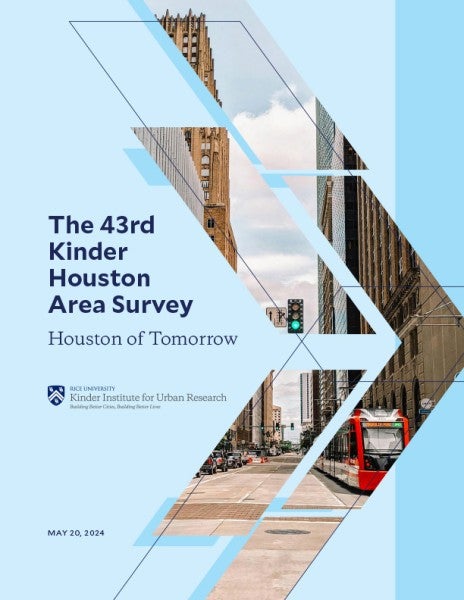The 43rd annual Kinder Houston Area Survey provides an unparalleled look at current conditions in the region as well as the “Houston of Tomorrow.” While the same challenges that have weighed on the region over the last few years — crime and safety, affordable housing and the economy — remain at the forefront of people’s thinking, survey results show Houstonians are excited about the next 10 to 20 years and how emerging opportunities may reshape their lives, careers and communities.
Key findings
- More than 1 in 4 Houston-area residents cited crime and safety as the biggest problem facing the area, making it the most commonly reported concern for the second straight year.
- More than 1 in 5 residents identified housing affordability as the region's biggest problem. Corporations, landlords and neighborhood opposition were the most commonly cited causes of affordability challenges.
- Houston’s economy continues to leave many residents worried and behind, as nearly half are unable to come up with $400 to cover an unexpected emergency expense.
- Support for investments in education has continued to increase. Seventy percent of residents agreed schools needed more funding to provide a high-quality education.
- In considering the future, Houston-area residents anticipate climate change will likely affect them personally and will harm the region’s economy.
- Given the significant leadership role Houston plays in the energy economy, 73% of respondents believe the city has an advantage when it comes to leading America’s alternative energy future.
- Houstonians appear to be of two minds about AI technology — 60% say it will result in job losses in the next 5 years, but half also say their own jobs are safe over the same time period.
The 2024 survey results were presented at the 2024 Kinder Institute Luncheon, and a recording of the presentation can be viewed here. To learn more about the Kinder Houston Area Survey and see results from past years, click here.







